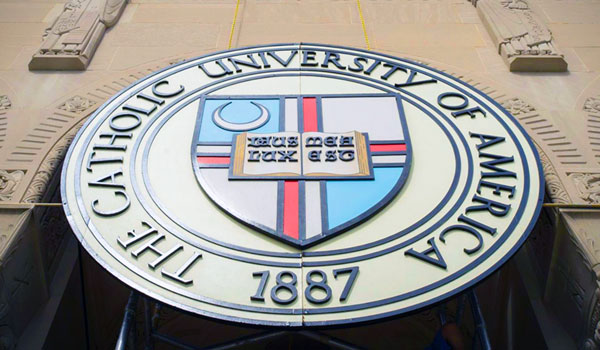The Heart of Washington, D.C.
Located in the heart of Washington, D.C., The Catholic University of America offers unparalleled opportunities. The seat of government of the world’s most influential nation is a magnet for businesses, foundations, aid agencies, science and technology centers, think tanks, charities, research institutes, cultural organizations, and policy advocates. For every area of academic pursuit, there are stories of students finding ways to connect, to make a difference, to open doors, and to have an impact here in the heart of our nation’s culture.


